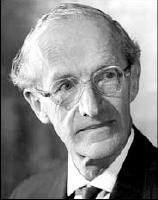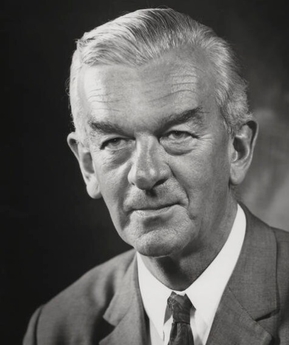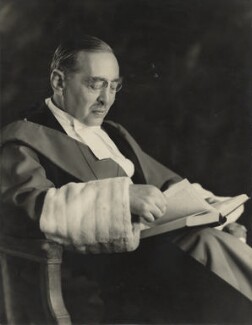
Richard Orme Wilberforce, Baron Wilberforce, was a British judge. He was a Lord of Appeal in Ordinary from 1964 to 1982.

Jocelyn Edward Salis Simon, Baron Simon of Glaisdale, was a Law Lord in the United Kingdom, having been, by turns, a barrister, a commissioned officer in the British Army, a barrister again, a Conservative Party politician, a government minister, and a judge.
Sir James Roualeyn Hovell-Thurlow-Cumming-Bruce, PC was a British barrister and judge who was a Lord Justice of Appeal from 1977 to 1985.
Terence Norbert Donovan, Baron Donovan was a British Labour Party politician and later a Lord of Appeal in Ordinary.
John Stewart Hobhouse, Baron Hobhouse of Woodborough, PC was a British barrister and judge who served as a Lord of Appeal in Ordinary from 1998 to 2004.

Charles Ritchie Russell, Baron Russell of Killowen, PC was a British lawyer and judge who served as a lord of appeal in ordinary between 1975 and 1982.

Francis Xavier Joseph Russell, Baron Russell of Killowen, PC, known as Frank Russell was a British judge.

Henry Vivian Brandon, Baron Brandon of Oakbrook, MC, PC was a British judge.

Frederick James Tucker, Baron Tucker PC was a British judge.

Lionel Leonard Cohen, Baron Cohen, PC, was a British barrister and judge.

Cyril Barnet Salmon, Baron Salmon, was a British judge.

Edward Holroyd Pearce, Baron Pearce, was a British barrister and judge. He served as a Lord of Appeal in Ordinary from 1962 until 1969. In 1971–72, he chaired the Pearce Commission, which was charged with testing the acceptability of a proposed constitutional settlement in Rhodesia.

Frank Boyd Merriman, 1st Baron Merriman of Knutsford,, known as Boyd Merriman, was a British Conservative politician and judge.
Albert Charles Clauson, 1st Baron Clauson CBE, PC was a British barrister and judge who sat as a Lord Justice of Appeal.
Sir Robin Horace Walford Dunn, MC, PC was a British Army officer and judge.

Sir Eric Leopold Otho Sachs, was a British barrister and judge. He was a High Court judge from 1954 to 1966 and then a Lord Justice of Appeal until 1973.
Sir John Edward Singleton was a British politician and judge.
Sir John Brinsmead Latey, MBE was a British judge.
The Honourable Sir Stephen Ogle Henn-Collins, CBE was an English barrister and High Court judge.
Sir Henry Josceline Phillimore, OBE, PC was an English barrister and judge, who served as a Lord Justice of Appeal from 1968 to 1974.











